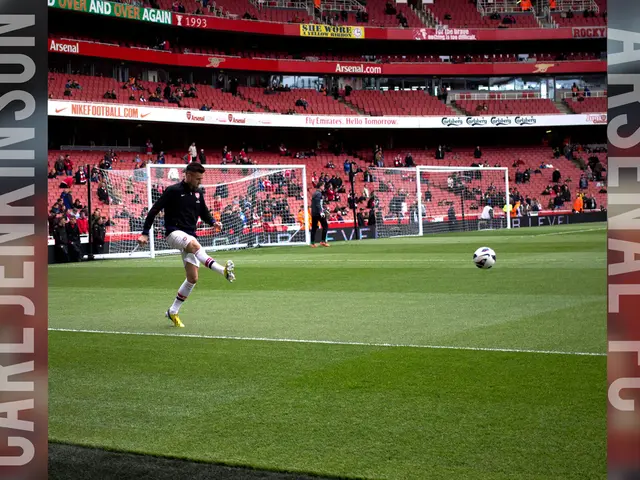Ifo Institute Downgrades Germany's Economic Outlook for the Year, Pins Hopes on Future Government's Debt Package
Reduced Outlook for Mini Forecast
Let's get down to the nitty-gritty of Germany's economic situation this year. The Ifo Institute, budget busters and economic experts, have dialed down their predictions for the German economy in the current year, expecting a mere 0.2% growth. Originally, they thought a 0.4% growth was in the cards, but alas! Their new-found sobriety has led them to accept minimal growth. A smidgen of cheer can be found in 2026, where they're hopeful for a more robust 0.8% growth, but let's not get our hopes too high now, eh?
Timo Wollmershäuser, the boss of Ifo's economic forecasts, expressed his thoughts: "The German economy is stuffed in a rut. Even with an influx of spending power, consumers remain cautious, and companies are making investments as if they're treading on thin ice."Industry, specifically, is grappling with weak demand and fierce international competition.
At this point, the Ifo haven't factored in the current plans of the prospective future government, as the details are yet to be finalized. However, if executed well, these plans have the potential to kickstart growth, especially in the coming years.
The proposed plans involve loosening the debt brake to accommodate increased defense spending and a 500 billion euro special asset for investments in infrastructure and climate neutrality anchored in the Basic Law. While the devil's in the details, if everything goes swimmingly, this year's growth could exceed the current forecast.
Political uncertainties loom large, thanks to the erratic and protectionist economic policies of the new U.S. administration. These policies have already taken a toll on the U.S. economy and the global economy at large. If additional tariffs on European products are implemented, the German export industry will bear the brunt.
Wollmershäuser stresses the need for political representatives to steer clear of this quagmire of uncertainty. "A steady-handed economic policy is imperative to foster trust and encourage investments," he urged, highlighting the necessity for companies to have a clear-cut path forward, especially in light of the industrial sector's structural changes.
The Ifo predicts an unemployment rate of 6.2% for the current year, slightly worse than their previous forecast. For 2026, they're calling for a 6.0% unemployment rate. Inflation-wise, the Munich economists expect 2.3% for the current year and 2.0% for the following year, just like in the winter forecasts.
So, raise a toast (or a beer stein) to Germany's economic situation—it's a rollercoaster ride, full of ups and downs!
Sources: ntv.de, jog/dpa
- Ifo Institute
- Economic forecasts
- Economic situation
Enrichment Data:
Overall, there are no specific economic growth projections from the Ifo Institute that directly address the impact of the future German government's debt package and the uncertainties posed by U.S. economic policy. However, we can make some inferences from the available information:
- Germany's Fiscal Stimulus Plan: Germany's proposed fiscal stimulus plan aims to boost economic growth by increasing military spending, infrastructure investments, and investments in climate-related projects. This plan has the potential to support economic growth in Germany and the euro area by providing more fiscal space [2][3].
- Debt Brake Reform: The reform of Germany's debt brake rules to allow for increased investment and defense spending has the potential to support economic growth. Allowing for more flexible fiscal policies can help stimulate the economy under changing economic conditions [2][3].
- Uncertainties and Challenges: Despite the proposed fiscal stimulus plan, Germany's economic growth remains uncertain due to factors such as the ongoing conflict in Ukraine, potential shifts in U.S. economic policy, and their resulting impact on trade, energy security, and overall economic stability [1].
- Market Reaction: The market reaction to Germany's fiscal stimulus has been mixed. Although government bond yields rose slightly, they remain low compared to international standards. However, the long-term growth implications are less clear due to the complexity of factors like European debt mutualization and exchange rate dynamics [1].
The Ifo Institute, in their economic forecasts, have not explicitly stated growth projections considering the impact of the future German government's debt package and the uncertainties posed by U.S. economic policy. However, if the government's proposed fiscal stimulus plan, involving loosening the debt brake and investments in infrastructure and climate neutrality, is well-executed, there may be potential for economic growth, especially in the coming years. Economists, including those at the Ifo Institute, express concern about the ongoing uncertainties from political and economic policies, particularly the potential for increased tariffs on European products due to the new U.S. administration's protectionist policies.



